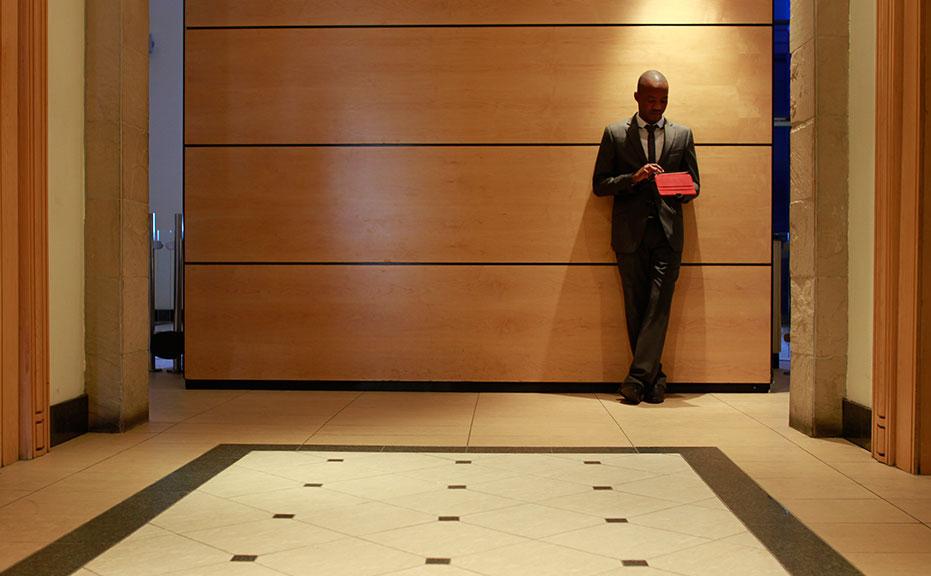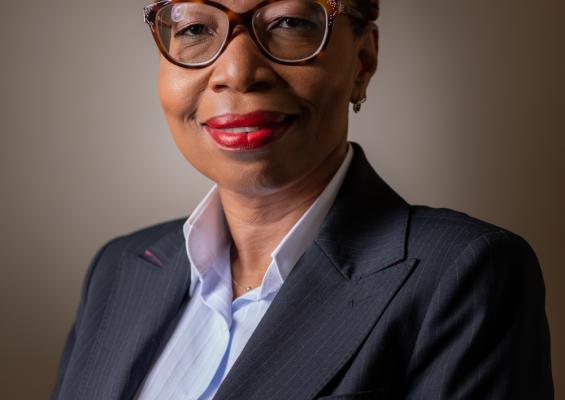I AM AN AFRICAN
I am an African. I stand proud of the Botswana blue coursing through my veins. Of the rumble of the clouds of rain, maru a pula, echoing my heartbeat. I am an African, celebrating the community who helped raise me, the culture that nourished me, our children who proudly carry the flag of this beautiful country in their hearts no matter where their feet may stand, the enterprising spirit that fulfils me, and the heritage that enshrouds me.
But am I also an African who has lost my voice? And if so, I fear I am not alone.
Today, our greatest capital is our voice; our greatest currency is our ability to promulgate change, and our effectiveness at driving progress. It is time that we muse, ponder and elucidate further on developing Africa, Not Westernising It. And this is where my African voice features, or at least ought to do so.
Our potential and opportunity as Africa and Africans is stronger than ever. Decades ago, they said Africa was rising. We saw the narrative grace covers of The Times, The Economist and more. How far have we come, and how do we become the architects and deliverers of our own vibrant dreams without compromising our unique and eclectic diversity of heritage, culture and African-ness? How we manage that rise is what matters now. I am an African, but I know that the onus is upon me, upon us all, to engineer our own legacies for Africa, for Botswana, for ourselves, and as a community collective. The transformation of Africa today is very much apparent. So why do we feed and help perpetuate harmful stereotypes and tropes about our cultures, beliefs and practices, instead of speaking truth to power about the rich diversity which makes us all so great?
It could be said that our resources are plundered, and our negotiation powers often stripped, and this may well be true. After all, Africa is almost always at the back of the literal and proverbial line, pleading for handouts – be it vaccines, resources or other basic needs. There is a distinct lack of urgency in this – we serve as secondary characters in our own story, rather than embracing a stronger sense of urgency, and becoming active authors of our own fate and our own narrative. Why?
We need to reclaim our story, our heritage and our ability to engineer our future, actively taking charge of Africa’s narrative as one of progress and deliverance. How do we reclaim it? It begins with a mindset shift, with a return to the very values and principles that birthed this great continent – botho, integrity, respect, extended family and tshwaragano. Pay homage to our elders, help fellow Africans rise and prosper, demonstrate gratitude, humility and more. Show respect to a culture of service and servitude, putting community above self, when necessary, leadership and recognising that progress is inherently sweeter and more sustainable when it comprises a collective rather than an individual.
Outside of politics and politicking, it is about leveraging traditional values and principles to unite us, bind us, and guide us. In doing so, we are better aligned and equipped to futureproof our own legacies as Africa and Africans. This means ensuring our infrastructure is inherently designed to ensure progress, connecting countries across Africa and built not simply to export outside of the continent but to facilitate intra trade.
It necessitates awakening our minds to be more deliberate and more intentional about recognising the wealth in being African and ensuring we all act as role models to live our truth in this way, inspiring generations to come and supporting each other to build off each other’s strengths, from ideation to execution, and re-defining our own standards and matrices of success, not those we borrow from others. It means collaborating with genuine desire to see efficacy and impact into the long term, recognising that we need to internalise and “make our own” things out there instead of simply aligning, subscribing or adjusting to fit other molds, from global development goals to climate change strategies and more.
We have become numb to so many of our own social ills – poverty gaps, gender issues, developmental bureaucracy – that we simply shrug and accept them without the necessary urgency to initiate change.
The bright future of Africa is so much stronger when we ensure it is really and truly an authentically African perspective, populated with the talents, ambitions and actions of Africans. Let us look no further than examples of solutioneering by Africans for Africans – Mpesa in Kenya, Rwanda’s growth, having in Q4 2019 reached 10.2% according to African Business, driven mainly by large public investments in implementation of the national strategy of transformation, the unrivalled academic prowess we see birthed from the continent, DRC’s incredibly powerful efforts in tackling Ebola, and South Africa’s own stamping out of apartheid from the grassroots up. In Botswana, harnessing the wealth of diamonds for community and National development and our addressing of the HIV crisis.
We have talent, we have ambition, and a truly phenomenal hunger for more. So, what does it take for us to leverage these in our own, truly authentic way, to move Africa forward, and to make “the Africa we want” a reality? Let us return to our values. Let us reclaim our story and carve it purposefully and intentionally refuse to take a back seat in the story of our own continent. We are grateful to those who may have provided some assistance; we are thankful for the support. But more than that, we are happy for respect for the autonomy we want, crave and deserve. We do not simply want a seat at the table, we want to build our own.
I, like many others, fear I may have allowed my voice to be silenced or muffled. Perhaps I did it to myself. Perhaps we allow fear, self-doubt or a lack of courage to foster that. No more.
The bright future of Africa is so much stronger when we ensure it is really and truly an authentically African perspective, populated with the talents, ambitions and actions of Africans. We have no shortage of means or passion. Let us follow in the footsteps of countries such as Ghana, Benin, Togo and Senegal, which export more manufactured machinery and goods within the Western African region than they do in their trading relations outside of Western Africa and the world. Let us forge a path that allows us to experience the western culture, without forgoing our own, one that will allow us to speak with one voice, embrace each other’s African cultures first, and solve our problems with like-minded approaches.
We have many to inspire us at a global level…from Botswana: Sir Seretse Khama, Nijel Amos, Isaac Makwala, Amantle Montsho, Rapelang Rabana, Mpule Kwelagobe, Dr. Sheila Tlou, Dr. Matshediso Moeti, and more. From Africa as a whole: Black Coffee, Ashish Thakkar, Elsa Majimbo, Mo Salah, Trevor Noah and many more! The list goes on! We should celebrate and be inspired by these phenomenal personalities, their work and their incredible contribution. They are all grounded by their African roots and upbringing, the communities they come from. Let’s allow them to inspire Africa more and be the driving force of our narrative.
With the new dawn comes the extraordinary opportunity to redefine who we are and to redefine the remarkable Africa we want for ourselves and the future generation. We remain inspired, unified, and united with one goal and one purpose.
I am an African, prouder and more determined than ever before. Join me and let us support and inspire each other in this revolution.
Piece by Catherine Lesetedi, CEO of The BIHL Group.


